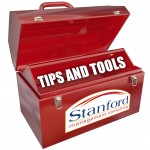 “Julia, how does managing by the numbers help the bottom line?”
“Julia, how does managing by the numbers help the bottom line?”
Every business needs a spending plan that looks at the money that must be spent relative to the money expected to come in. This leads us to a business description of a budget: A projection of both income and expenses for a coming time period. No business venture should ever proceed without planning. A budget is a critical part of planning.
Your budget is the first step in managing by the numbers. A budget is a spending plan. Your company’s budget is a look into the near future–a way to predict money that will be available to spend and what it will be spent on. This might sound easy, but that’s not always the case because there’s no way to know exactly what will happen to your business in the coming year. Managing your business by the numbers each month will help you react quickly in response to sales forecasts that were not realized. There can be many reasons for a dip in expected sales. The key is to respond with a reduction in expenses and of course evaluating why the sales goals were not met. Were the goals reasonable? Were there unexpected challenges that are atypical? Does there need to be an adjustment to the forecast of sales for future months? These are all questions whose answers could change what you forecast in expected expenses.
There are generally three types of budgets a business owner can and should establish.
- A cash flow budget. This type of budget specifically details the amount of cash that is collected—usually monthly, but sometimes weekly. The cash flow budget accurately lists specific details of the cash sources and amounts that a business receives and distributes. A well-documented cash flow budget will enable an entrepreneur to build and maintain the cash reserves needed for future growth.
- An operating budget is a projection of business activity for the coming year, how much we expect to produce. It anticipates and predicts the revenue and expenses for a company for the year. An operational budget is perhaps, the most common type of budget used and what we will discuss.
- The capital budget places a value on the equipment that is needed in order to grow the business and boost revenues to the next level. Perhaps the importance of the capital budget is to assess how much it will cost to implement new procedures and equipment in order to create a new product or expanded service for the business.
Where to start when creating an operation budget:
In order to create and analyze a budget effectively, a business owner must clearly define a vision and set goals for the company. Ask yourself where you want your company to be in two, four or six years. How do you want the company to expand—by adding more staff, equipment, products or services? Perhaps you want to manage more efficiently by controlling expenses while keeping revenue constant. All are very important questions you should ask yourself before starting a budget.
Consider these steps when preparing an annual budget:
- Examine the vision of your company
- Review last year’s budget vs actuals
- Project your Revenue
- Project your Expenses
- Create your budget—income and expenses
- Review the budget and determine if it’s attainable, sleep on it.
- Compare and review your budget regularly, at minimum monthly
Some practical rules for creating and monitoring an operation budget:
- Always charge expenses to the activity incurring them in the Costs of Goods Accounts.
- Place every item of expense under someone’s direct control.
- Have those who are responsible for an expense budget help prepare it.
- Don’t hold people responsible for expenses they don’t personally control.
- Don’t try to carry expense-budget funds over to the next period.
- Don’t attempt to move funds between capital and operating budgets.
- Require some level of approval for all expenditures.
- It’s important to track the money going into each expense category as well as how much is spent altogether, so a breakdown of the expenses charged to any activity is essential.
- A budget can’t be prepared properly right before the new period starts. Past costs adjusted for whatever is known about the coming period are some of the best predictors of future costs. With that in mind, you should gather information that will be used in preparing for the next period throughout the present period.
How does a budget help the bottom line?
As a small business owner, one of the most important tools you have in your tool box is a budget. It should be done annually—and monitored on a regular basis. You must establish an annual budget and deal with it every day. Monitoring your actual financial performance against your financial goals is a pivotal part of entrepreneurship and the health of your company.
Unfortunately, budgets are prepared annually and often are not reviewed until it’s time to prepare a new one. However, by this time, it might be too late to revamp or strategize to meet your goals. Managing by the numbers simply means monitoring financial reports on a consistent basis and responding appropriately when goals are not met. Developing and monitoring an annual budget on a consistent basis will ultimately help a business to show a profit. For example, a well-planned and carefully executed budget will help an entrepreneur:
- Predict sales
- Control costs
- Reduce spending
- Estimate production costs
- Set specific goals for payroll and other costs
- Pre-plan profit!
It’s okay to have a budget that may prove to be a challenge, but don’t be unrealistic and set financial goals that you will not be able to achieve. Learn to pre-plan profit and protect the bottom line versus waiting until the end of the year to see what is left!
